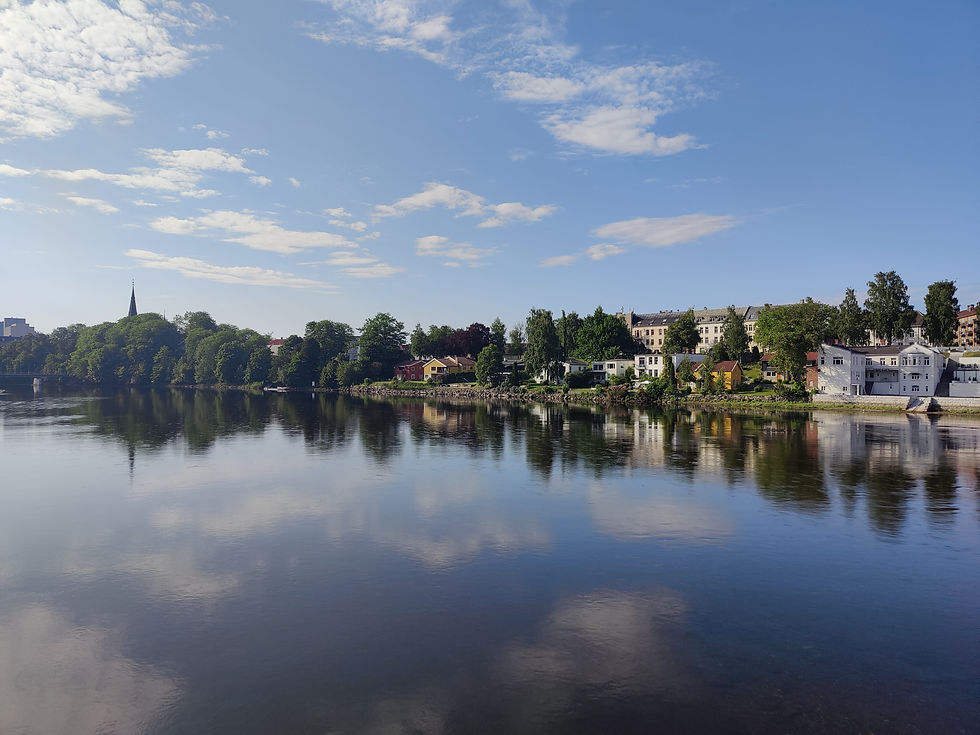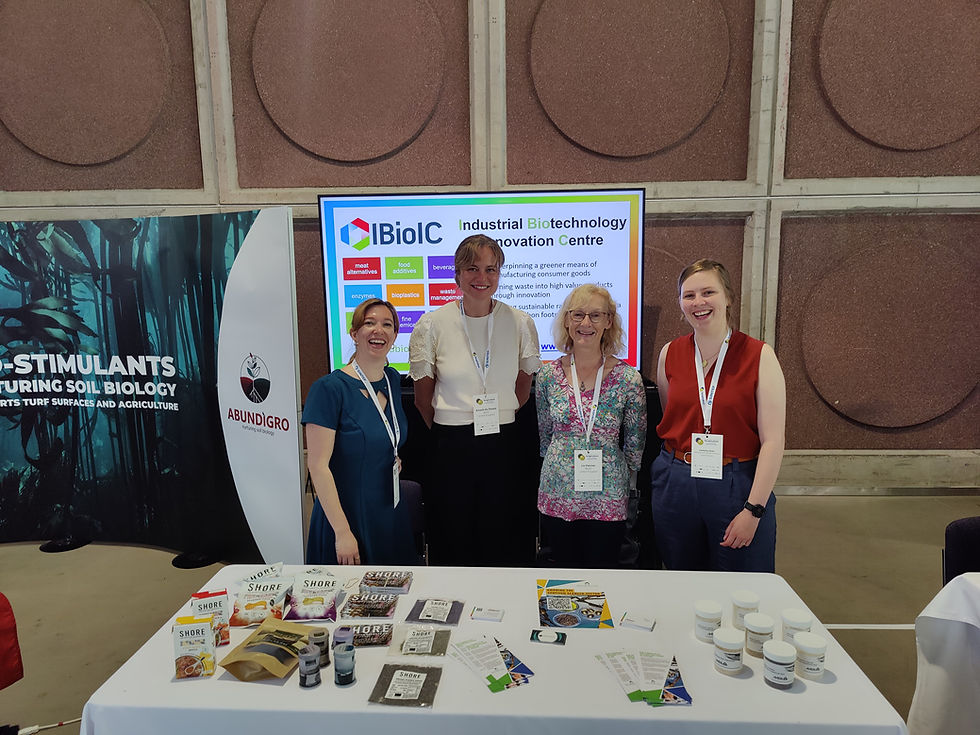By Rhianna Rees

This year I was able to attend the Seagriculture EU conference with the help of SAIC’s travel grant. As usual, the Seagriculture EU Conference did not disappoint. Held in the idyllic Norwegian town of Trondheim, the conference brought together experts from various fields to discuss the challenges and opportunities of offshore farming, bioremediation, and colocation. As someone who cares deeply about the development of the sector, I found the discussions to be both enlightening and inspiring.
One of the key takeaways from the conference was the need for investment in solution-based research. It's not enough to simply identify problems; we need to focus on finding practical solutions. This requires collaboration between scientists, policymakers, and industry leaders. The good news is that there are already promising developments in the field of offshore farming, especially covering aspects in engineering, biology, and practical trials. Innovators in the sector have the potential to provide sustainable food sources while also reducing the environmental impact of traditional agriculture.
Another area of focus at the conference was bioremediation, which involves using natural processes to remove pollutants from the environment. This is particularly relevant in coastal areas, where pollution from agriculture and industry can have devastating effects on marine ecosystems. By harnessing the power of macroalgae and other natural processes, we can clean up our oceans and protect the health of marine life.
Land-based cultivation systems were discussed at length at Seagriculture EU. However, it is worth noting that land-based cultivation systems have their own set of advantages and disadvantages.
Here are some key points to consider:
Advantages:
· Land-based systems can be easier to manage and control than offshore systems.
· They can be more accessible and cost-effective for small-scale farmers.
· They can be used to grow a wider variety of seaweeds that are difficult to cultivate out at sea.
Disadvantages:
· Land-based systems can be more vulnerable to pests and diseases.
· They can require large amounts of water and fertilizer, which can have negative environmental impacts.
· They require infrastructure and the availability of suitable land.
It's important to consider both land-based and offshore cultivation systems when thinking about sustainable aquaculture. Each approach has its own strengths and weaknesses, and the best solution will depend on a variety of factors, including location, climate, and available resources.

Finally, the concept of colocation was also discussed at length. This involves combining different types of aquaculture in the same area, such as fish farming and seaweed cultivation. By doing so, we can create a more efficient and sustainable system that benefits both the environment and the economy.
Overall, the Seagriculture EU Conference was a fascinating and thought-provoking event. It highlighted the importance of investing in research and innovation to address the challenges facing our planet. As someone who loves to travel and explore new places, I'm excited to see what the future holds for offshore farming and other sustainable practices.

Comments